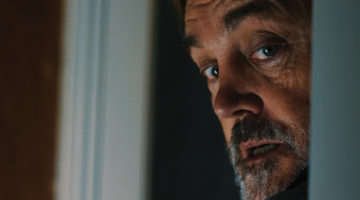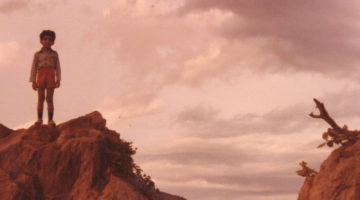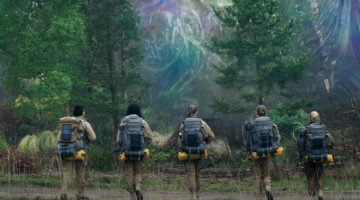TIFF 2012 Review: The End of Time
Though having watched it, and having the movie notes right in front of me, I’m not exactly sure how long The End of Time really is. It says 117 minutes, but it can certainly feel like twice as long. Or a lifetime. Or really nothing at all.
So in that regard, the documentary succeeds at what it is trying to do: to challenge your perception of time, which as it points out, is not a thing, but an idea. Torontonian Filmmaker Peter Mettler interviews physicists, disc jockeys, squatters, Buddhists, astronomers, one man living alone on an island, and even his own mother in search of the meaning of time.
It is a mobius strip of a movie, challenging, subverting, and then embracing concepts of time, and certainly seems to go around in an endless loop of a film, with no beginning and no ending. Interviews and exploration are interrupted with lengthy images of nature and weather, with time often understand alongside seasons and geographic locations.
Snow falling on trees, fires abounding, and especially some very slow moving lava in Hawaii is certainly gorgeous shots, meant to show the meaning or lack thereof in the passage of time. The pahoehoe flow is visually gorgeous, but just because it moves at a different pace (nature has a consciousness, according to some in the film), doesn’t necessarily mean humans should. In another stunning sequence, an ant happens upon a dead grasshopper, and pretty soon his buddies arrive to carry off the dead insect.
While these images and others are fascinating, there film seems to want to have fun at the expense of the audience. Locations and names are only alluded to at times as nothing is labeled, with the constructs of a conventional documentary thrown out the window, all in an effort to illustrate the powerful human construct of time.
In that way, though, the film ultimately fails, coming off with extraordinary pretense. It is reflexive, and as it strives to stress a certain point, but it is a subversive point that does more harm than good by showing that time doesn’t matter by making a film that ignores the normal process audiences come to expect from a film. For the director, it is hard to escape: it’s like making a movie that says movies are bad: your can undermine your point.
As the film progresses, and time is discussed time and time again, you can’t help but wonder that maybe you should be doing something else. It is a test, offering what could be possible interpretations of time, and then forcing you to experience them, oscillating between kaleidoscopic imagery and pulsating sound to the silence and peace of untouched nature. Some of these interludes are particularly engaging, with syncopated rhythms drawing you in, but others are simply pointless.
In that, there may be a definition of time, which is to say, there is none specific. It is what we make it to be, and we act and react to it in our own ways. The film is bound to be divisive, and it is certainly interesting to think about, but for how long you want to care about it is up to you.
[star v=25]






